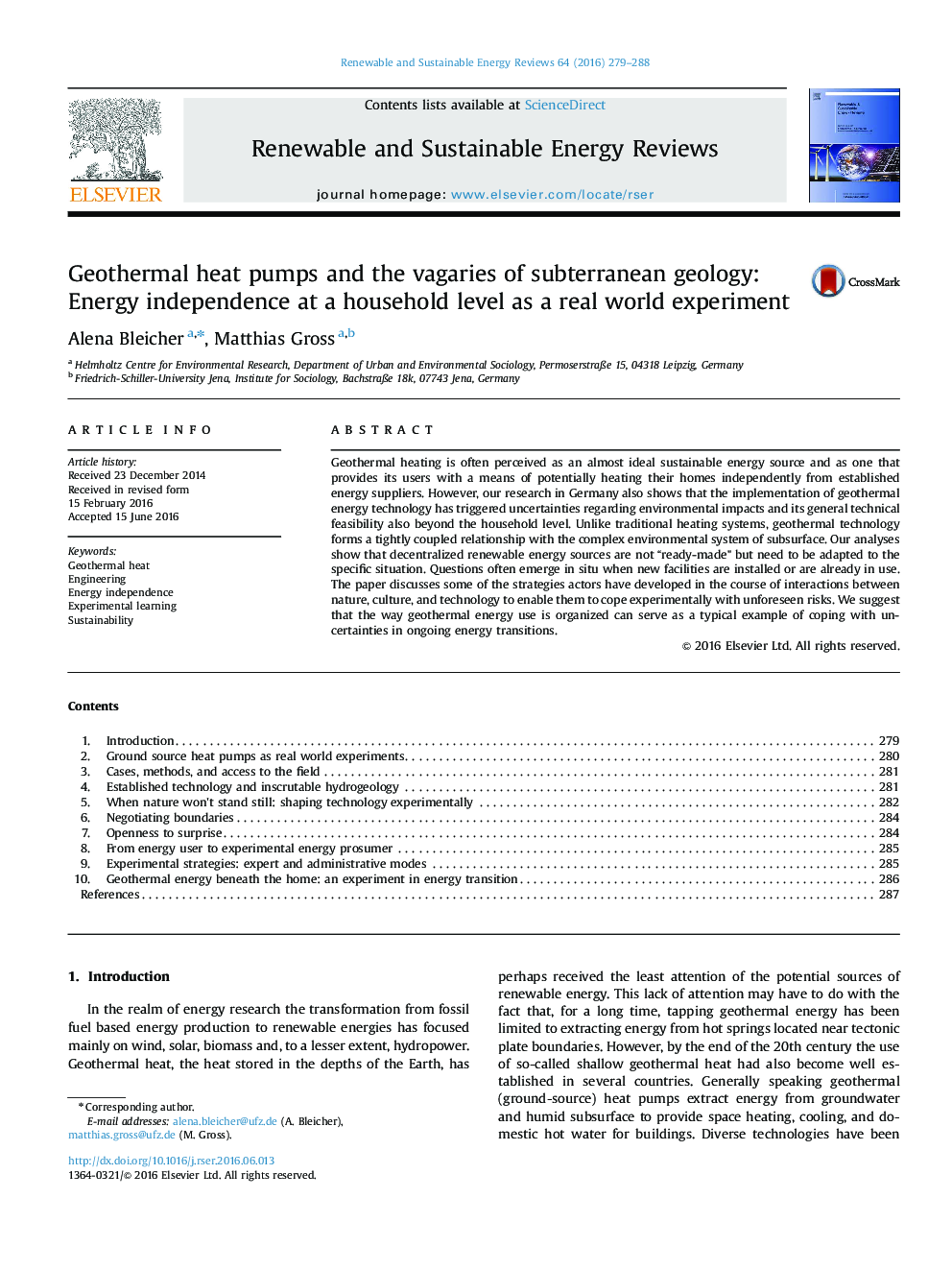| Article ID | Journal | Published Year | Pages | File Type |
|---|---|---|---|---|
| 8113016 | Renewable and Sustainable Energy Reviews | 2016 | 10 Pages |
Abstract
Geothermal heating is often perceived as an almost ideal sustainable energy source and as one that provides its users with a means of potentially heating their homes independently from established energy suppliers. However, our research in Germany also shows that the implementation of geothermal energy technology has triggered uncertainties regarding environmental impacts and its general technical feasibility also beyond the household level. Unlike traditional heating systems, geothermal technology forms a tightly coupled relationship with the complex environmental system of subsurface. Our analyses show that decentralized renewable energy sources are not “ready-made” but need to be adapted to the specific situation. Questions often emerge in situ when new facilities are installed or are already in use. The paper discusses some of the strategies actors have developed in the course of interactions between nature, culture, and technology to enable them to cope experimentally with unforeseen risks. We suggest that the way geothermal energy use is organized can serve as a typical example of coping with uncertainties in ongoing energy transitions.
Related Topics
Physical Sciences and Engineering
Energy
Renewable Energy, Sustainability and the Environment
Authors
Alena Bleicher, Matthias Gross,
